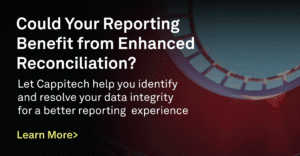
Transaction reporting for hedge funds
After winning the HFM European Technology Awards for “Best Regulatory Reporting Solution”, Ronen Kertis, CEO and founder of Cappitech, shared his insights on transaction reporting obligations for hedge funds.
Q What transaction reporting regulations are hedge funds obligated by?
A European transaction reporting affects nearly all investment firms and many corporates. For hedge funds, it comes down to their licence type and underlying funds.
For EMIR/SFTR, the regulation is counterparty based. Therefore, falling under scope are the underlying funds which need to report when they are domiciled within the EU or areas covered by the regulation.
Unlike EMIR, MiFID II reporting is only required for MiFID investment firms. Hedge funds registered as an AIFM are nearly always exempt from the regulation, regardless of the underlying funds they are managing.
Q There was some initial confusion about which AIFs would be under scope for SFTR, what has been decided?
A In ESMA’s Final Report for SFTR that was released in January, they had indicated that a non-EU AIF managed by an EU AIFM would fall under scope for its Securities Financing Transactions (SFTs). However, this was later clarified by ESMA and non-EU AIFs were carved out of the regulations regardless of the domicile of their manager.
Q Now that the first phase of SFTR is behind us, how should the buy-side get ready for their October implementation?
A First, firms should review their trade types to confirm that any of their lending transactions are classified as SFTs under SFTR. Second, determine if any SFTs are taking place within EU funds being managed. Once determining that they do in fact fall under SFTR, they can check with their counterparties to see if there are delegation services they provide. Next, firms need to learn about Reuse Reports under SFTR, as even if delegation is an option, this part of the reporting they will need to do themselves.
Firms should also evaluate what it takes to report themselves such as what data is available to create the reports, costs of third party services and opening an account with a trade repository.
Q Most buyside firms have their EMIR reporting handled by their counterparties, what should hedge funds review when it’s delegated?
A Delegated reporting by bank counterparties is by far the most common way hedge funds are complying with EMIR. However, in EMIR data quality reviews conducted by ESMA and NCAs, they found many problems with delegated reports. Notably, the Central Bank of Ireland (CBOI) notified many fund companies of errors. Problems included reporting the incorrect underlying fund, failure to correctly allocate trades, late reports and missing submissions altogether.
Overall, it is advised that hedge funds have a process in place to ensure that reports are submitted on their behalf and that information from counterparties on their reporting rules is reviewed and monitored periodically for accuracy.
Q Are there risks with delegation?
A The bottom line is that you can outsource your reporting, but you can’t outsource your regulatory responsibilities. Therefore, the ultimate responsibility of report submissions being done correctly falls on the hedge fund. This means that if there are errors in delegated reporting, the fund bears any regulatory risk of this.
Q What is your advice to hedge fund managers on how to ensure CAT (complete, accurate and timely) transaction reporting?
A Firstly, have someone within the company that transaction reporting is their responsibility. We often see firms where there isn’t a set role of who is managing transaction reporting compliance and can take actions for reviews and ensuring accuracy. Second, as previously mentioned, have a process for reviewing submissions and or adding 3rd party systems that provide analysis and alerts of submissions.
Q Finally, what should you be looking for when buying a regulatory reporting solution?
A There has been a noticeable shift in focus around the importance of client support when it comes to selecting a transaction reporting solution. Naturally, when searching for a solution, buyers examine the technology, product feature sets as well as the cost of the product. These factors are crucial but often neglect the significance of the onboarding process and the role the relationship manager plays. The preliminary results from our 2020 global regulatory reporting industry survey support this; with 60% of survey respondents saying that ongoing client support has been the most important factor influencing their regulatory reporting during Covid-19. Certainly, it helps with managing the risk for small-medium firms where they have one or two people responsible for reporting and using a vendor gives them the coverage needed should their staff become unavailable.
An edited version of this Q&A can be found in the 2020 HFM European Technology winners report.
Contact us to learn more about how we are helping over 200 financial institutions fulfil their reporting obligations.







